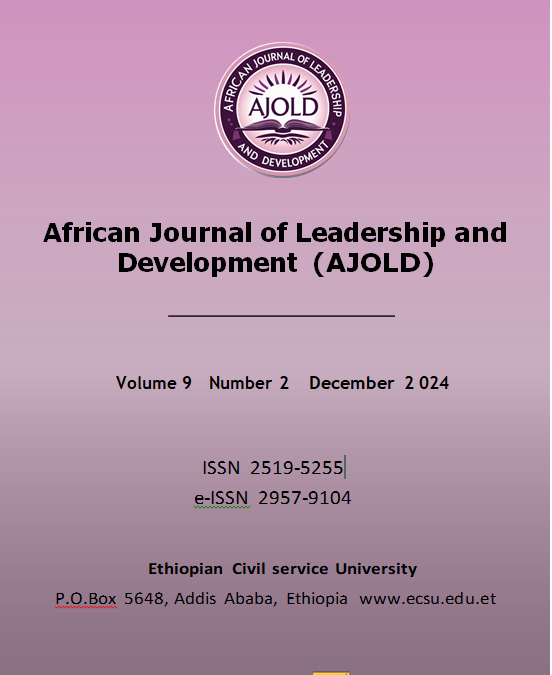The Role of Learning Culture on Perceived Workforce Performance in Selected Capacity Building Public Organizations of Ethiopia
DOI:
https://doi.org/10.63990/2024ajoldvol9iss2pp23-52Keywords:
Learning Culture, Human capital, Performance, WorkforceAbstract
The study aimed to examine the role of learning culture on workforce performance within the context of selected capacity-building public organizations in Ethiopia. Explanatory and descriptive research designs were used. The research employed mixed research approach. The population of the study was the selected capacity-building public sectors workforce. Both or proportionate simple random sampling and purposive sampling techniques were used based on the nature of the data and the relevancy of the information. Questionnaires, interviews, and focus group discussions were used to collect firsthand data. Quantitative data was analyzed quantitatively using SPSS Version 26 and process software. Descriptive and inferential statistics were used to analyze the data based on the specific objectives. Qualitative data was analyzed using thematic analysis and triangulated with the quantitative results. The finding of the study shows that there was a gap in the implementation of learning culture dimensions. The regression analysis indicated that the dimensions of the learning culture of an organization positively and significantly affect the workforce performance of organizations. In addition, the result shows that human capital variables such as education and years of experience of employees positively mediate workforce performance. It was concluded that linking learning culture dimensions with education and years of experience improves workforce performance. Recommendations were given based on the core results.
Downloads
Published
How to Cite
Issue
Section
License
This work is licensed under a Creative Commons Attribution-NonCommercial 4.0 International License






